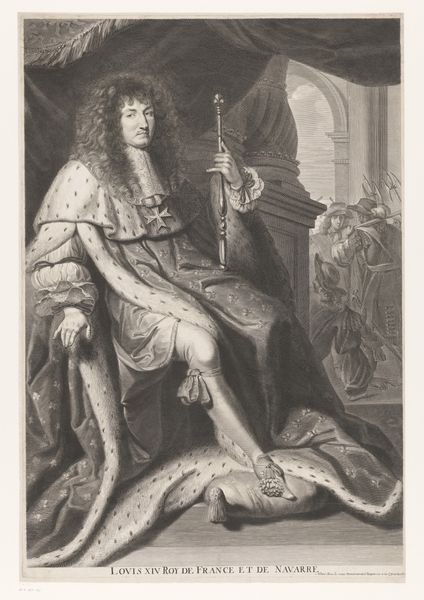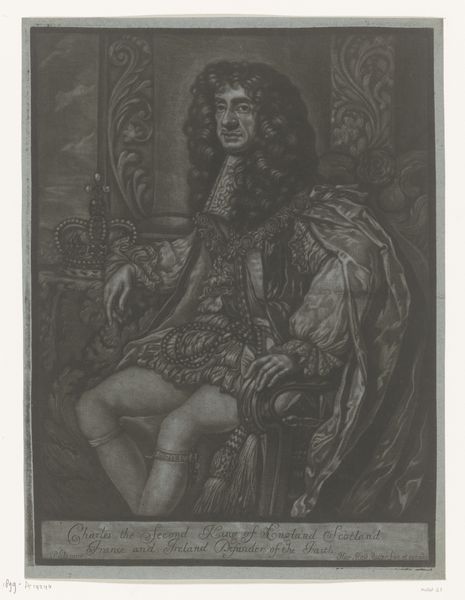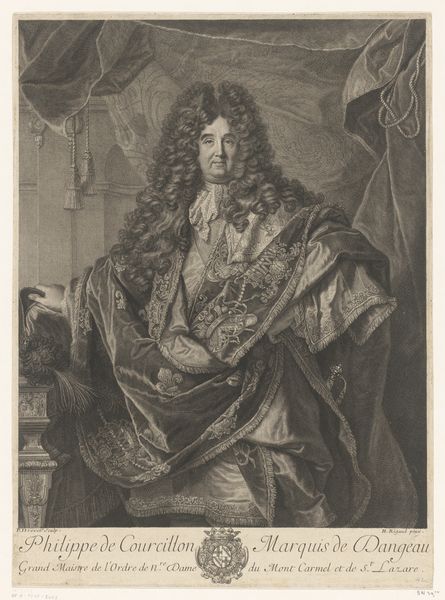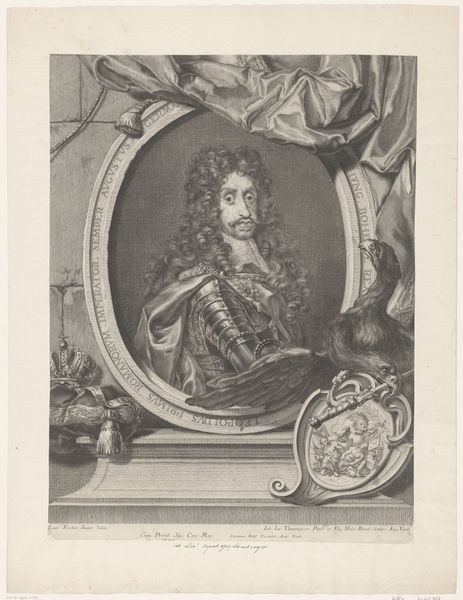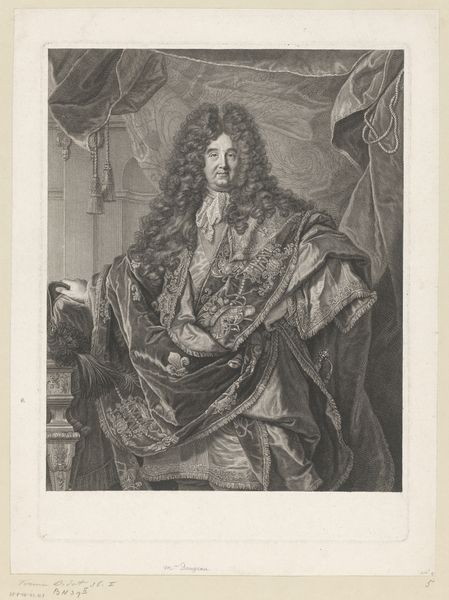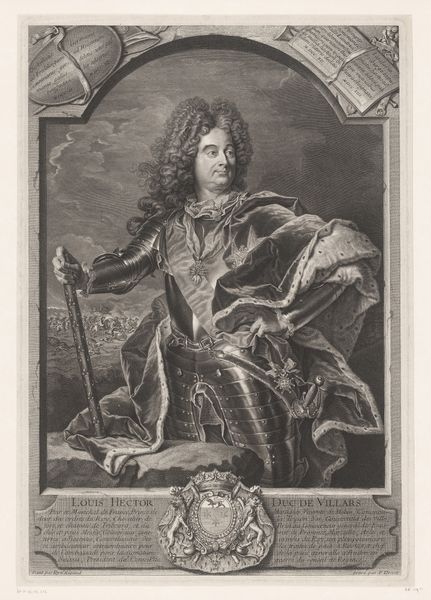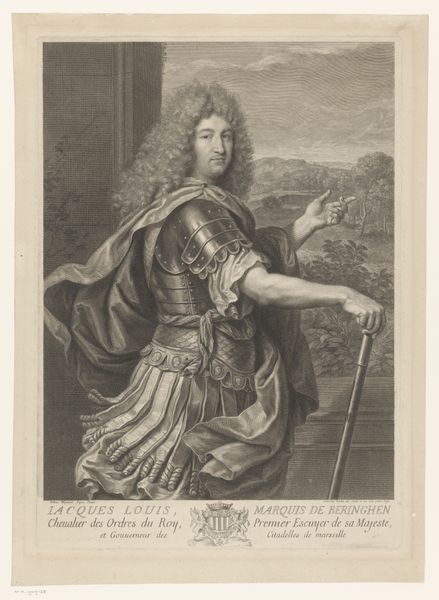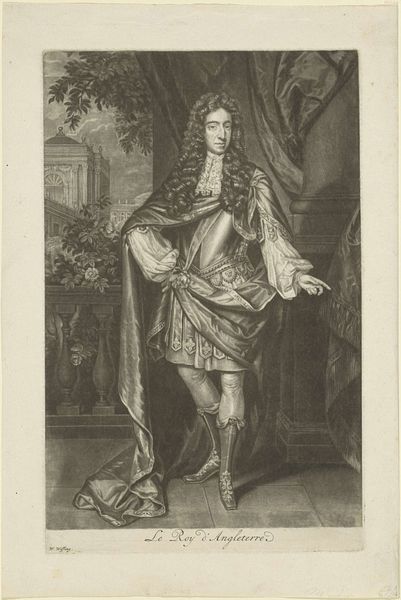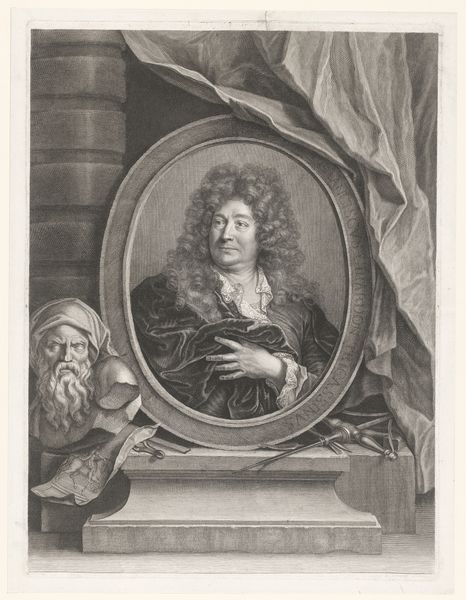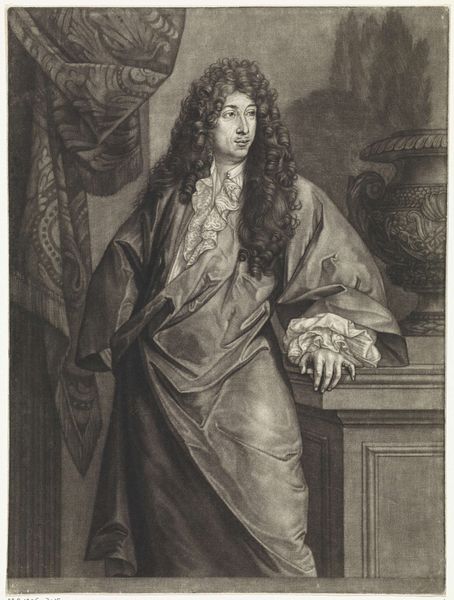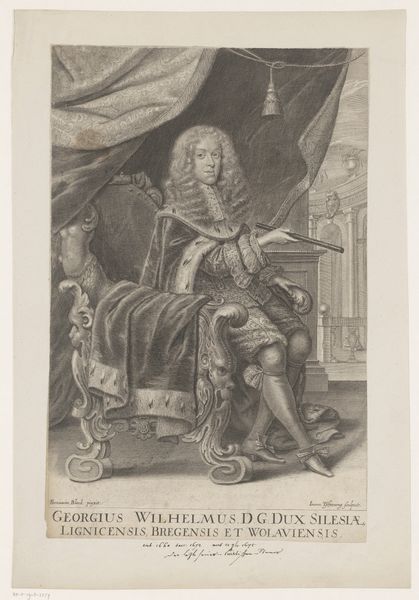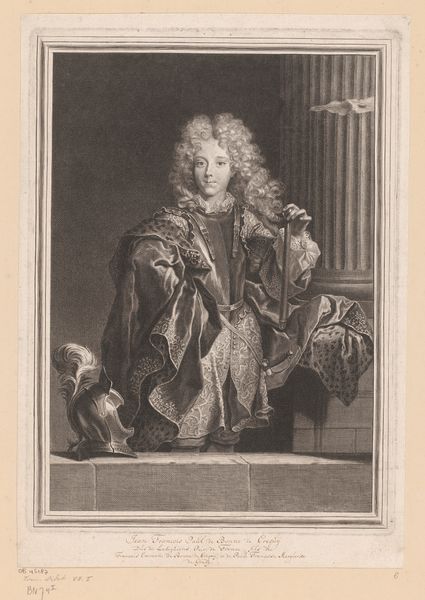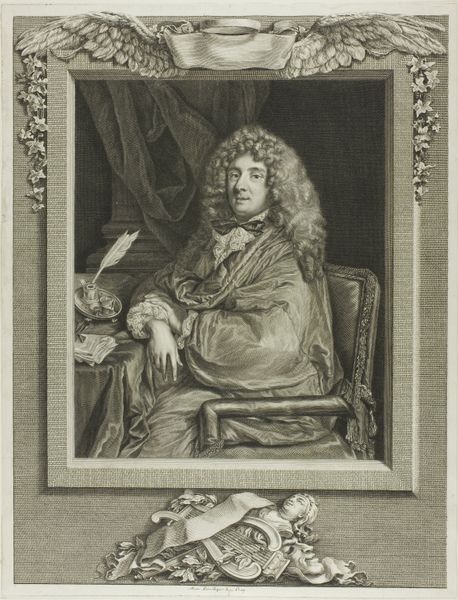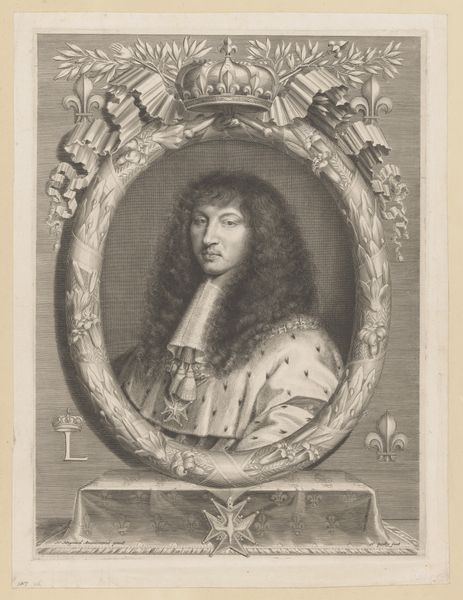
engraving
#
portrait
#
baroque
#
history-painting
#
academic-art
#
engraving
Dimensions: height 507 mm, width 360 mm
Copyright: Rijks Museum: Open Domain
This portrait of Charles II, King of England, was made by John Faber the Younger, sometime around the first half of the 18th century. It’s a mezzotint, a printmaking technique that allows for rich tonal range, perfect for capturing the textures and details of the king's garments and surroundings. Mezzotint begins with roughening the entire plate with a tool called a rocker, creating a burr that holds ink. The printmaker then smooths areas to varying degrees, creating lighter tones. Look closely, and you’ll see how Faber used this method to render the sheen of the king's satin clothes, the weight of his velvet robe, and even the soft curls of his wig. The process of mezzotint is laborious, demanding meticulous skill and time. This investment of labor speaks to the importance of portraiture in asserting power and status. This wasn’t just an image; it was a carefully crafted representation of authority, intended to impress and persuade. Faber’s technical virtuosity elevated printmaking from a mere reproductive medium to a sophisticated art form, blurring the lines between craft and fine art.
Comments
No comments
Be the first to comment and join the conversation on the ultimate creative platform.
